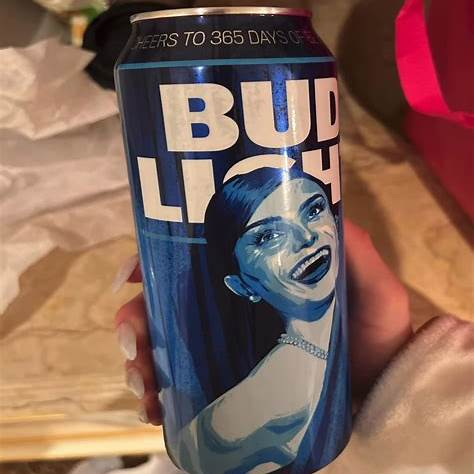Liquid Nostalgia and the Myth of Grit
- Kelly Watt
- Mar 30
- 4 min read
Updated: Mar 30
Just as the LeSabre cruised suburban streets as a symbol of mid-century stability—big, bland, and built to reassure—Bud Light has become a liquid relic of that same mythology. It is Boomer mythology on wheels, just like Bud Light is Boomer masculinity in a can on diet.
Picture the LeSabre: a bloated American sedan, vinyl roof, fake wood paneling, the kind of car that idles in front of a suburban ranch house while the sprinkler arcs over a sunburned lawn. This was not a car built to turn heads. It was a car built to never turn—at least not quickly. It existed for comfort, not thrill. For bulk, not beauty. For dads who couldn’t understand European cars and didn’t want to. Its entire ethos was "Don’t rock the boat."
That is Bud Light.
Like the LeSabre, Bud Light is everywhere and nowhere—ubiquitous but invisible. It is a drink so neutral, so perfectly non-committal, it has become the spiritual beverage of a generation terrified of flavor, terrified of confrontation, and most of all, terrified of change.
The LeSabre said, "I’ve got nothing to prove." Bud Light says, "I don’t want to talk about it"—then gulps itself down like a coping strategy dressed as ritual, chased with denial and a patriotic aftertaste.
Both are monuments to default masculinity. Not toxic in the overt sense, but quietly complacent. They represent a masculinity that doesn’t shout, doesn’t fight, doesn’t grow. It just lingers. In a driveway. In a cooler. In the cultural bloodstream.
You don’t choose Bud Light. You settle for it. You inherit it from your dad, your uncle, your coach. It shows up at BBQs like someone’s third divorce—awkward, expected, and always slightly warm.
And much like the LeSabre, Bud Light clings to nostalgia as armor. It's not actually about what's in the can. It’s about what the can means. They take on that can the same way Dylan wore her embellishments—with intention, symbolism, and the weight of performance. The difference is, hers is rooted in joy and self-expression; theirs in fear, denial, and the aching need to preserve a world that never really existed. The seed of their discontent is the belief that gender—rigid, binary, and unchanging—is a pillar of their world that must be protected at all costs. They fear that questioning it will unravel everything else. It’s not about beer. It’s about the comfort of roles handed down and never examined. Bud Light becomes a stand-in for blue-collar grit, minus the actual struggle. It’s patriotism in a can—easy to consume, hard to question. It’s masculinity built on repetition, never reflection.
Just as the LeSabre rolled out year after year with cosmetic upgrades and the same tired engine, Bud Light has tried to reinvent itself without ever actually changing. Citrus variants, platinum editions, aluminum bottles—it's all chrome on the same damn dashboard. Underneath it all, it still tastes like regret filtered through condensation.
Let’s be honest: Bud Light is the backwash of beer.
It’s not just watery—it’s emotionally watery. A beer for men who think IPAs are pretentious and Miller High Life is a luxury import. A beer for people who put more thought into their fantasy football lineup than their emotional development. A beer for the LeSabre driver who never turned the radio off AM.
And now, having tried for one second to appear inclusive, Bud Light has yanked the wheel back to center like a LeSabre on a wet curve. Out went the marketer who dared to suggest progress. Out went the hint of freshness. Back came the flags, the horses, the halftime commercials with men who haven’t cried since the Challenger blew up.
Because, like the LeSabre, Bud Light is not here to lead. It is here to idle.
It idles in the background of bad decisions, of backyard bar fights, of every cookout where someone says "I'm not racist, but..." and someone else says "She was asking for it." It idles in frats and garages and places where nothing grows. It has become the flavor of cultural stagnation.
And still, the same generation gripping their beer cans and idling their gas guzzlers calls you entitled—from the comfort of homes bought when tuition was cheap, unions still held, and the middle class hadn't yet been hollowed out. They inherited the winnings of the Greatest Generation, then quietly rolled up the welcome mat—closing borders, gutting schools, and selling off the future one policy at a time. The earth ran hot, the air ran thin, but their portfolios stayed plump. Education and health care weren’t burdens then; they were building blocks. Now, they’re someone else’s problem.
So go on—drink up, all you authoritarian rough rider wannabes who missed the memo. The world moved on. Marlboro’s man up in smoke is dead. The cowboy’s been canceled. And no amount of flat beer or bootcut nostalgia is bringing him back.
Discharge your bullets into cans—because that’s all your threadbare conscience can stomach, a thinly veiled threat of what you’d really do if it weren’t for the flicker of law or shame. But go ahead—call it harmless. Call it faith. Call it freedom. It’s all just the cope of knuckle-dragging Peter Pans clinging to their place in the primate class.
Bud Light won’t make you brave. It’ll just help you hide behind a myth that stopped serving anyone but you.
Cheers to the morning-after backwash—the bitter taste of a myth collapsing in your throat. I won’t be there to hold your hair back when you're hunched over the porcelain altar of consequence. You've earned it. So enjoy the headache—it radiates for days.




Comments